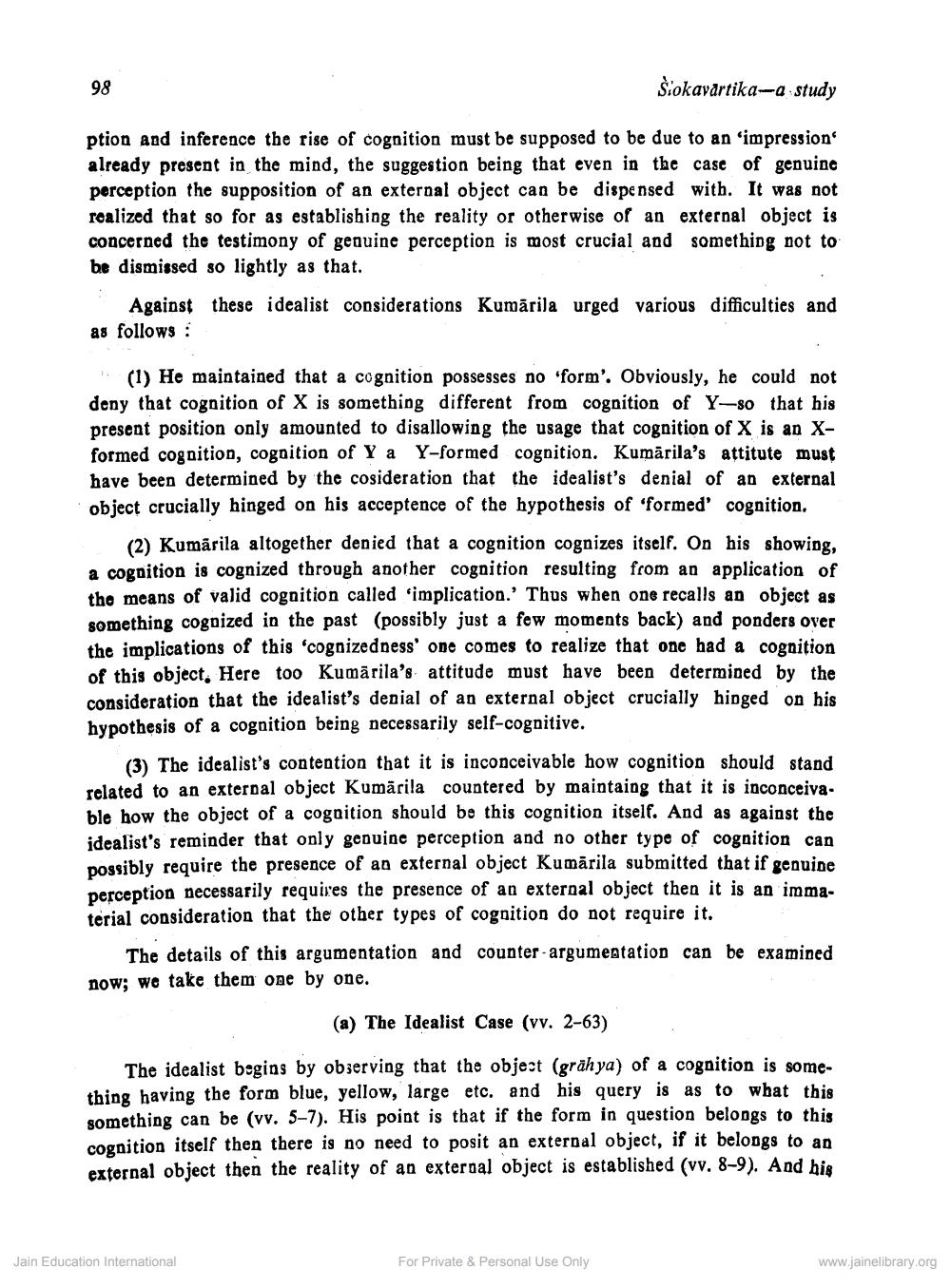________________
Siokavartika-a-study
ption and inference the rise of cognition must be supposed to be due to an 'impression' already present in the mind, the suggestion being that even in the case of genuine perception the supposition of an external object can be dispensed with. It was not realized that so for as establishing the reality or otherwise of an external object is concerned the testimony of genuine perception is most crucial and something not to be dismissed so lightly as that.
98
Against these idealist considerations Kumārila urged various difficulties and as follows:
(1) He maintained that a cognition possesses no 'form'. Obviously, he could not deny that cognition of X is something different from cognition of Y-so that his present position only amounted to disallowing the usage that cognition of X is an Xformed cognition, cognition of Y a Y-formed cognition. Kumārila's attitute must have been determined by the cosideration that the idealist's denial of an external object crucially hinged on his acceptence of the hypothesis of 'formed' cognition.
(2) Kumārila altogether denied that a cognition cognizes itself. On his showing, a cognition is cognized through another cognition resulting from an application of the means of valid cognition called 'implication.' Thus when one recalls an object as something cognized in the past (possibly just a few moments back) and ponders over the implications of this 'cognizedness' one comes to realize that one had a cognition of this object, Here too Kumārila's attitude must have been determined by the consideration that the idealist's denial of an external object crucially hinged on his hypothesis of a cognition being necessarily self-cognitive.
(3) The idealist's contention that it is inconceivable how cognition should stand related to an external object Kumārila countered by maintaing that it is inconceiva ble how the object of a cognition should be this cognition itself. And as against the idealist's reminder that only genuine perception and no other type of cognition can possibly require the presence of an external object Kumarila submitted that if genuine perception necessarily requires the presence of an external object then it is an immaterial consideration that the other types of cognition do not require it.
The details of this argumentation and counter-argumentation can be examined now; we take them one by one.
(a) The Idealist Case (vv. 2-63)
The idealist begins by observing that the object (grahya) of a cognition is something having the form blue, yellow, large etc. and his query is as to what this something can be (vv. 5-7). His point is that if the form in question belongs to this cognition itself then there is no need to posit an external object, if it belongs to an external object then the reality of an external object is established (vv. 8-9). And his
Jain Education International
For Private & Personal Use Only
www.jainelibrary.org




